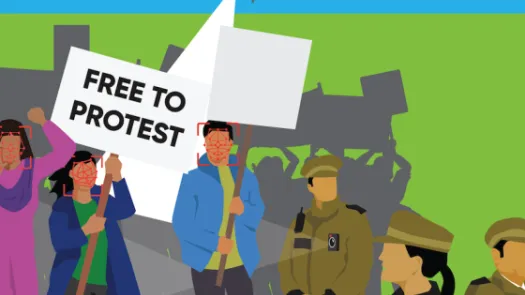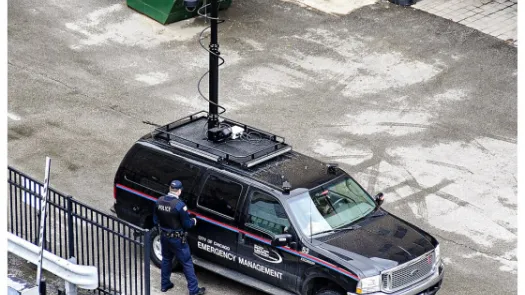
PI's submission the UN Special Rapporteur on freedom assembly 2023
Privacy International's response to the UN Special Rapporteur on the rights to freedom of peaceful assembly and of association on the tools and guidelines which may assist law enforcement in promoting and protecting human rights in the context of peaceful protests
- Protest surveillance is a direct interference not only with the right to privacy, but also freedom of peaceful assembly
- Policing powers, including surveillance, enacted to facilitate assemblies must genuinely enable participation in protests and must be strictly limited in order to ensure they are not used to suppress protests or to justify excessive restrictions to these freedoms
- Subjecting everyone who is involved in protest to mass surveillance erodes the right to freedom of assembly instead of facilitating it
- Facial recognition technologies should never be used to identify those peacefully participating in protests
- States must ensure that before any surveillance technologies are acquired by law enforcement agencies, they are subjected to prior human rights impact assessments

Privacy International's response to the call of submissions of the UN Special Rapporteur on the rights to freedom of peaceful assembly and of association on the tools and guidelines which may assist law enforcement in promoting and protecting human rights in the context of peaceful protests. The Special Rapporteur's report will be presented at the 55th session of the UN Human Rights Council.
While PI recognises the role of law enforcement can play in facilitating the enjoyment of freedom of assembly, states must ensure that any measures to facilitate protest do not undermine the enjoyment of the very right they claim to protect.
Generalised, and indiscriminate surveillance subjects anyone who wishes to participate in a protest to a variety of serious sanctions, and, ultimately, has a chilling effect on the ability to take collective action safely and freely. As a result, we urged the UN Special Rapporteur to include in their report the position that Indiscriminate and generalised protest surveillance is unlawful.
We also recommended that any power to undertake targeted protest surveillance should adhere to requirements under international human rights law. Similarly, any power to undertake protest surveillance must be subjected to clear restrictions and robust safeguards.
Our submission also includes recommendations on measures to prevent and minimise harms related to surveillance at protests. This includes, for example, that in the absence of individualised reasonable suspicion, it is unlawful to retain protesters’ personal data merely because they participated in a protest. Any personal data collected incidentally must be deleted without undue delay. This policy would minimise the harm which stems from the databases being built about journalists and human rights defenders who regularly participate in monitoring protests. We also argue that there must be legal safeguards against mobile phone extraction and other intrusive practices.
Finally, we included recommendations around measures to facilitate the right to freedom of assembly and protect the rights of groups particularly at risk in the context of protests. This includes making it unlawful to undertake any form of protest surveillance on the basis of race, ethnicity, sex, religion, political or other opinion, national or social origin, association with a national minority, property, birth, or other status. Additionally, we argue that predictive policing technologies should be banned, and that law enforcement should be required to undertake public consultations before acquiring new technologies.


